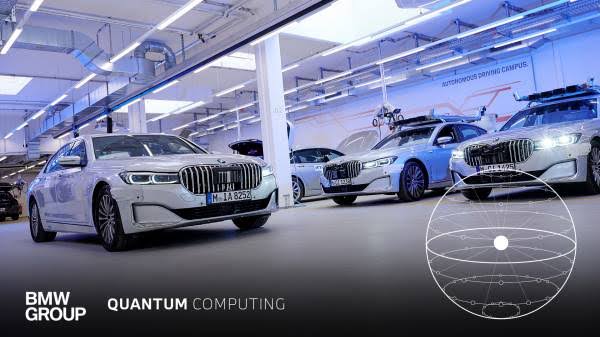Airbus and BMW Group launched “The Quantum Mobility Quest,” a global quantum computing challenge to solve aviation and automotive problems.
This challenge, sponsored by The Quantum Insider and AWS, will reward participants worldwide with €30,000 in prizes spread across five categories. The goal is to advance the use of quantum applications in transportation by 2024.
The two industry giants’ collaboration is a significant step towards using quantum technologies to improve transportation efficiency, sustainability, and safety.
Isabell Gradert, Airbus’ Vice President of Central Research and Technology, believes now is the time to highlight quantum technology and its potential impact on society. Airbus needs to bridge the gap between scientific exploration and its potential applications, so partnering with BMW Group helps mature the technology.
To join our challenge of bringing about a significant paradigm shift in the design and operation of aircraft, we are looking for the world’s top students, PhD candidates, academics, researchers, start-ups, companies, or industry professionals.”
Read also: Top 11 technology trends in 2023
Understand quantum machine
Quantum machines, such as quantum computers, use superposition to compute using quantum bits (qubits). Quantum computers can process information differently from classical computers, which use bits representing 0 or 1.
These machines do many things well. They excel at logistics, financial modeling, optimisation, and complex resource allocation. Chemical, physical, and materials science use quantum machines to model quantum systems, materials, and molecules.
Data processing is optimized by quantum machine learning. Quantum computers break cryptographic codes with complex algorithms. Quantum computing aids AI data analysis and pattern recognition.
Quantum power for future transportation
Quantum computing has the potential to solve issues that many regular computers simply can’t. Vehicle transport and other data-heavy industries could benefit from this game-changing technology, which could change how factories work and open new ways for people to get around.
In “The Quantum Mobility Quest,” participants are encouraged to optimise aerodynamics with quantum solvers, integrate quantum machine learning into future automated mobility, optimise for a more sustainable supply chain, and use quantum simulation for corrosion inhibition. The freedom to introduce quantum technologies may unlock unexplored transportation applications.
Challenge structure and assessment
The Quantum Insider (TQI) hosts the two-phase challenge. Four months are spent developing theoretical frameworks for problem statements. Then, finalists implement and benchmark their solutions. Candidates can test their algorithms on Amazon Web Services (AWS) quantum computing.
Senior quantum experts and Airbus, BMW Group, and AWS representatives will carefully evaluate proposals. The five challenge winners will receive €30,000 each, with results announced in 2024.
